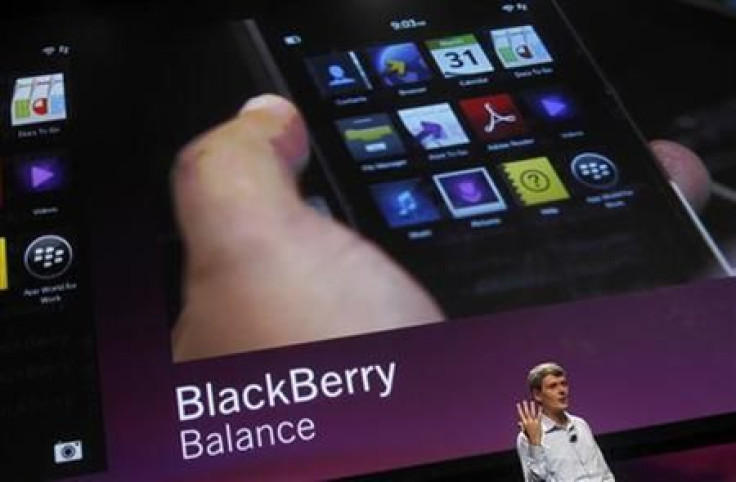RIM Shares Soar 50% In November On BlackBerry 10 Hopes

What a difference a new product makes: Since it announced the BlackBerry 10 may be shipped on Jan. 30, rather than in April, shares of developer Research in Motion have been on a tear.
For November, shares had gained nearly 50 percent. For the past three months, the boost has been about 60 percent. In Tuesday trading, though, shares of the Waterloo, Ontario, company fell $1.25 to $10.73, still 33 percent below their year-ago amount. That brings November's gain to only 41 percent.
At Tuesday's prices, RIM's market capitalization remains at $5.62 billion, well below the values of its biggest rivals in the smartphone and tablet sector, Samsung Electronics (Seoul: 005930) and Apple (Nasdaq: AAPL).
But the claims by CEO Thorsten Heins that the long-awaited BlackBerry 10 will be shipped about a quarter earlier than expected appear to have helped the shares. Heins's biggest challenge is to keep RIM's 80 million subscribers from defecting, buying a more versatile phone from a competitor.
As well, RIM also has reported huge losses on operations after Heins, installed as CEO only in January, took huge writeoffs and announced layoffs of as many as 15,000 employees and factory closings.
For the past three quarters, RIM has reported cumulative net losses of $878 million on revenue of $9.87 billion. RIM also faced pressure from two dissident outside investors, Toronto's Jaguar Financial and New York's Omega Adviser, to shake up management or put the company up for sale.
The pressure led to the departures of co-CEOs Michael Laziridis and Jim Balsillie, the layoffs as well as hiring of JPMorgan Chase (NYSE: JPM) and a unit of Royal Bank of Canada (NYSE: RY) for investment advice.
Much of RIM's problem stemmed from the 2010 acquisition of QNX Software from Harman International (NYSE: HAR) and the Canadian company's delay in adapting its OS to the existing BlackBerry OS. The BlackBerry 10 runs on the QNX OS, which Heins made available to developers six months ago.
Tom Coupland, analyst with CIBC World Markets, is betting the new device will work well for customers. He estimates RIM may ship as many as 41 million new phones in fiscal 2014, compared with only 30.2 million in current fiscal 2013, which ends in March.
At Macquarie Research, analyst Kevin Smithen was more skeptical, keeping a “neutral” rating on the shares. Still, he believes RIM's mobile carriers will eagerly carry the device because customers are waiting for a new model.
Even if BlackBerry 10 is a huge success, RIM will have to sell a lot of them to regain market share. In the third quarter, its overall smartphone share fell below 5 percent compared with the year-earlier's 12.5 percent, IDC estimated. Samsung and Apple, meanwhile, took about 75 percent of the market. Part of Tuesday's fall was attributable to one market researcher's estimate that November's sales trimmed RIM's share to below 2 percent.
Shares of Apple fell $4.75 to $584.78 in Tuesday trading. They've fallen 13 percent in the past three months.
© Copyright IBTimes 2024. All rights reserved.












